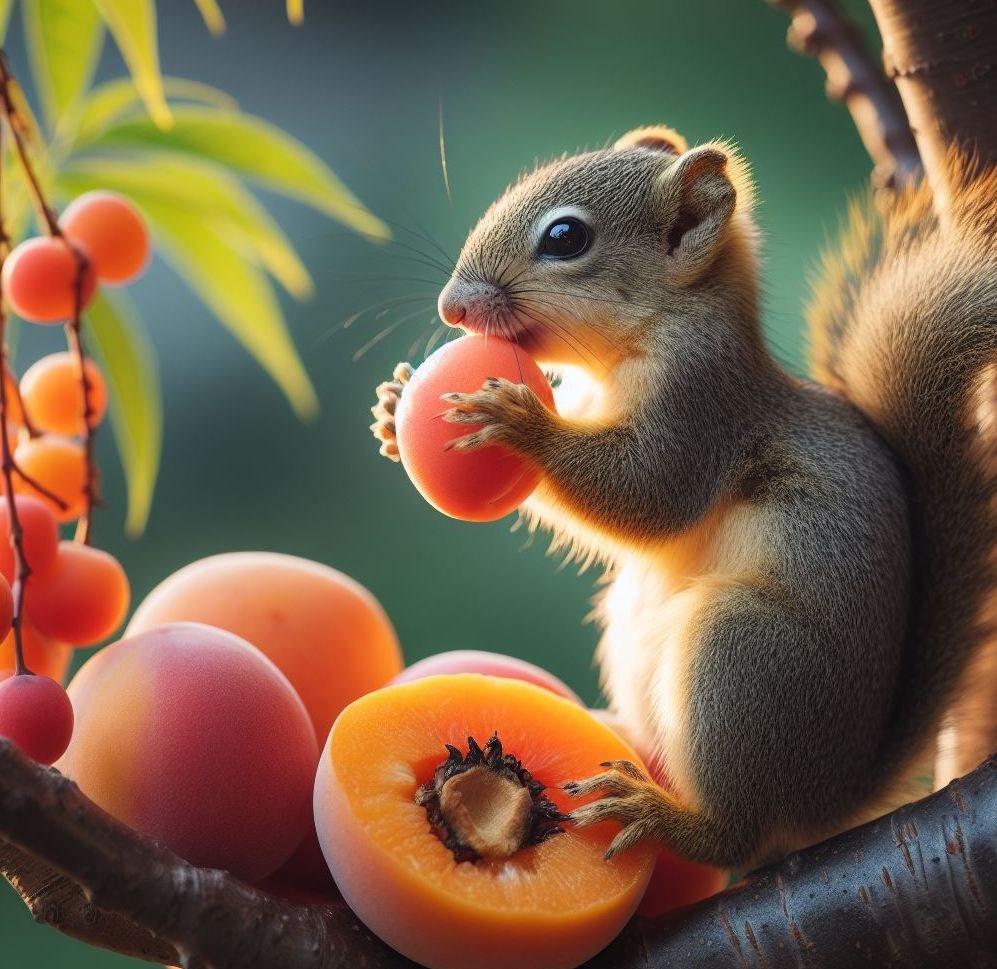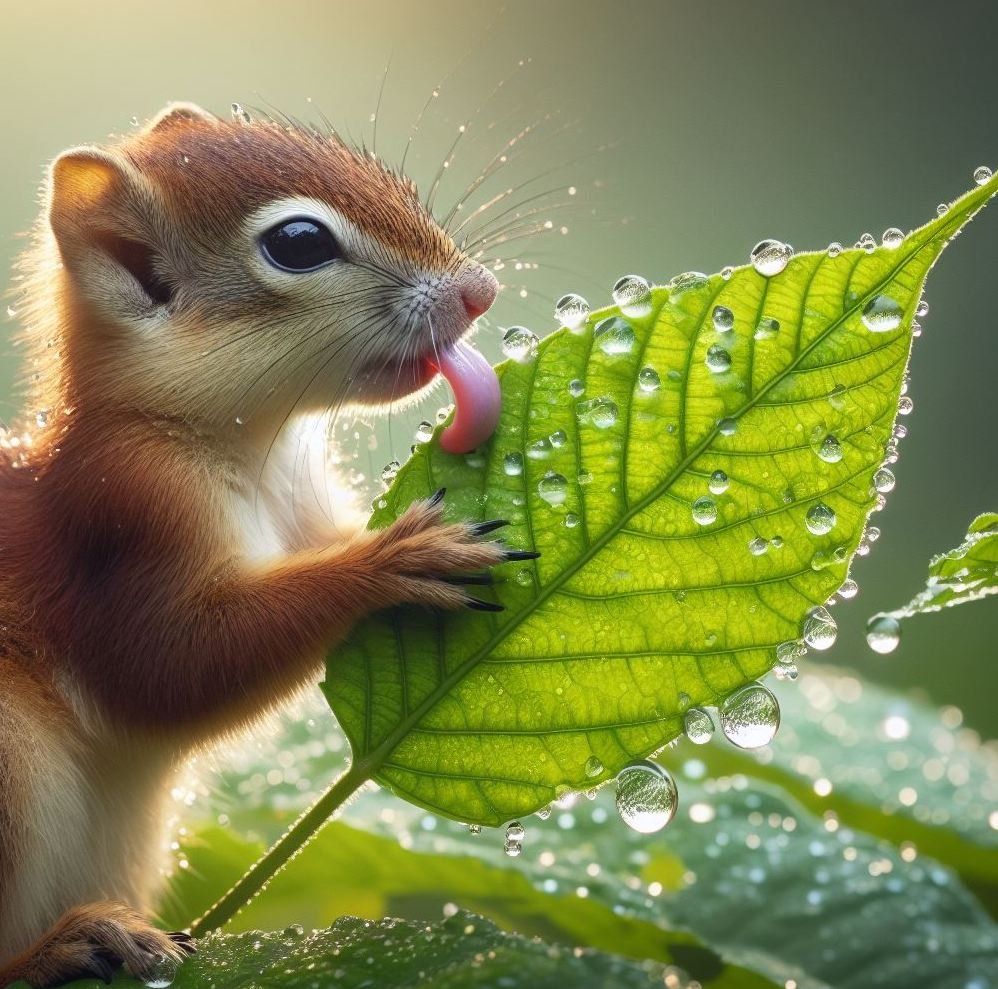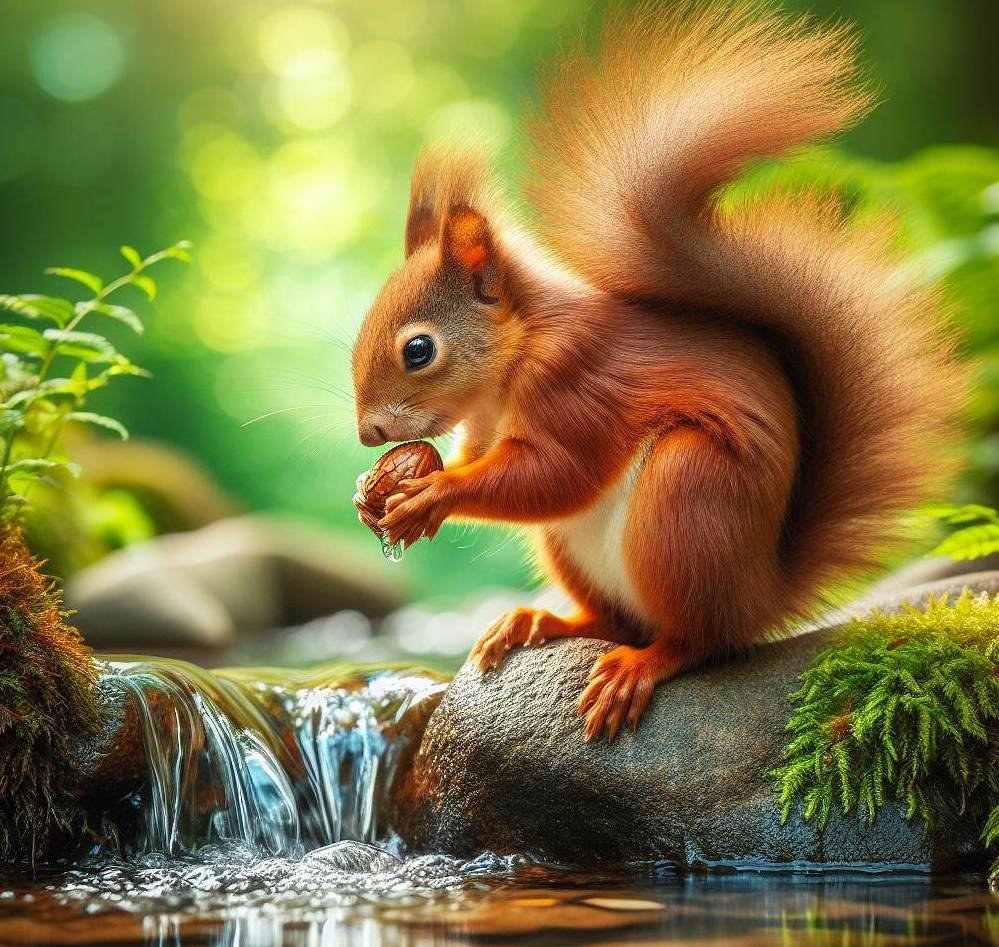Squirrels darting up trees and burying nuts are a common sight, especially during fall. But have you ever wondered – do squirrels need to drink water to survive? And if so, how do they find it in the wilderness? These bushy-tailed rodents have adapted clever strategies for getting the moisture they require. Understanding their relationship with water also shows us how vital clean, accessible water sources are for all wildlife.
Do squirrels need water?
Yes, squirrels need water to survive, just like all living creatures. Water is essential for several physiological processes in their bodies:
- Regulating body temperature – Squirrels use water for evaporative cooling to avoid overheating. Their large, bushy tails work as radiators to release body heat.
- Transporting nutrients – Water dissolves and carries nutrients through their bloodstream and cells. It also maintains blood volume.
- Aiding digestion – Water facilitates digestion by helping break down food and absorb nutrients in the intestines.
- Removing waste – Water is lost through urine and feces to get rid of metabolic waste products.
Without adequate water sources, squirrels can become severely dehydrated and die within days. Like humans, they need water daily to replenish the loss from normal functioning. During summer or lactation, their water requirements increase to counter higher losses from heat or milk production.

How do squirrels find water in the wild?
Squirrels have an impressive ability to utilize both natural and alternative water sources across seasons:
Natural Sources of Water
- Streams, ponds and puddles – Squirrels get a majority of moisture from open freshwater sources like these.
- Dew drops – Early mornings, they lick dewdrops from leaves and grass.
- Food – Squirrels eat juicy, succulent foods with high water content like fruits, plants, seeds, tree sap, and insects. Up to 15% of their water intake comes from food.
Proximity to water sources is a key driver of habitat selection. Squirrels prefer living close to rivers, marshlands, or other wetlands offering year-round water access.
Alternative Sources of Water
When natural water holes dry up, squirrels display great adaptability to find alternative sources for hydration:
- Bird baths – Squirrels drink from and even bathe in bird baths.
- Water bowls – Pet bowls left outside are an easily accessible option.
- Swimming pools – Squirrels take a dip to cool off and hydrate.
- Tree sap – Chewing bark exposes the moist inner bark and sap, which they lap up.
- Cacti – In deserts, barrel cacti and prickly pears offer internal fluid.
–> Thus squirrels can thrive in arid environments too through behavioral adaptations.
Seasonal Variations in Water Needs
Water drives squirrel behavior and movements seasonally:
- Summer – High temperatures result in greater water loss from heat and evaporation. Squirrels lick more salt to compensate and need to drink more.
- Winter – With most natural sources frozen over, squirrels rely more on eating snow for water intake.
- Droughts – Lack of water strains habitats. Squirrels travel further searching for water, leading to exhaustion and conflict.
Water availability thus changes squirrel dispersion patterns between seasons. Providing artificial water sources during dry periods aids populations under duress.
Adaptations for Water Conservation
Squirrels have specialized anatomical and behavioral adaptations to reduce water needs and loss in their bodies:
Physical Adaptations
- Concentrated urine
- Minimal sweat glands reducing evaporation
- Fur to limit sun exposure
Behavioral Adaptations
- Seek shade in summer
- Reduce activity in heat
- Drink early morning when cooler
- Eat juicy, succulent foods high in moisture
Their small size, food habits, and habitats near water access all help squirrels fulfill hydration needs most times. But human activities threaten these sources.

Impact of Human Activities on Squirrel Water Access
Various anthropogenic factors negatively affect squirrels’ access to clean, safe drinking water:
| Issue | Impact |
|---|---|
| Deforestation | Destroys habitat around watersheds |
| Urbanization | Covers/contaminates natural waterbodies |
| Agriculture | Chemical/soil runoff pollutes streams |
| Trash | Can breed deadly bacteria in water sources |
Such human encroachment stresses squirrel populations by making natural water holes unusable or harder to reach. Habitat loss and fragmentation is the gravest threat squirrels face worldwide due to our development projects.
We must protect existing water bodies and supplement new accessible sources to support wildlife affected by our footprint. Doing so encourages coexistence with these delightful creatures brightening our parks and backyards.
Conclusion
Like all living beings, squirrels need water daily to regulate body temperature, transport nutrients, digest food, and remove waste from their systems. Though small, squirrels have adapted to skillfully utilize both natural (streams, dew) and alternative (bird baths, fruits) water sources across seasons and landscapes. However, habitat destruction by human activity has started threatening their access to safe hydration. We must safeguard their existing water bodies while thoughtfully providing new ones through sound conservation planning for nature to thrive alongside man.
So, do squirrels really need to drink water? A resounding yes! Knowing why draws attention to how closely interconnected we remain with nature and the duty we bear to sustain other earthlings — be they squirrels, songbirds or bees. Small flywheel effect of actions like hunting down dry bowls or clearing trash could in future give the most charming creatures amongst us — our own grandchildren — the chance to chase bushy tails outside.
FAQ
Question 1: Do squirrels need water to survive?
- Yes, squirrels, like all living creatures, need water to survive. Water is essential for several physiological processes in their bodies, including regulating body temperature, transporting nutrients, aiding digestion, and removing waste.
Question 2: How do squirrels find water in the wild?
- Squirrels have an impressive ability to utilize both natural and alternative water sources across seasons. Natural sources of water include streams, ponds, puddles, dew drops, and food. Alternative sources of water include bird baths, water bowls, swimming pools, tree sap, and cacti.
Question 3: How do squirrels adapt to water scarcity?
- Squirrels have specialized anatomical and behavioral adaptations to reduce water needs and loss in their bodies. Physical adaptations include concentrated urine, minimal sweat glands reducing evaporation, and fur to limit sun exposure. Behavioral adaptations include seeking shade in summer, reducing activity in heat, drinking early morning when cooler, and eating juicy, succulent foods high in moisture.
Question 4: How do human activities affect squirrel access to water?
- Various anthropogenic factors negatively affect squirrels’ access to clean, safe drinking water. These include deforestation, urbanization, agriculture, and trash.
Question 5: How can we help squirrels access water?
- There are a number of things we can do to help squirrels access water. These include:
- Protecting existing water bodies
- Providing new accessible water sources
- Planting trees and shrubs that provide shade and shelter
- Reducing our use of pesticides and fertilizers
- Keeping our yards clean and free of trash
Hey there, fellow nature enthusiasts! I’m Mark Gray, the passionate owner of OutdoorAnimals.com, a hub dedicated to uncovering the incredible world of outdoor animals. Whether you’re a hiker, a four-wheeler, or just someone who revels in the beauty of the great outdoors, you’re in the right place. I seek to understand all varieties of animals, from the great elk to the simple mouse, my goal is to write and share this knowledge with the public.

